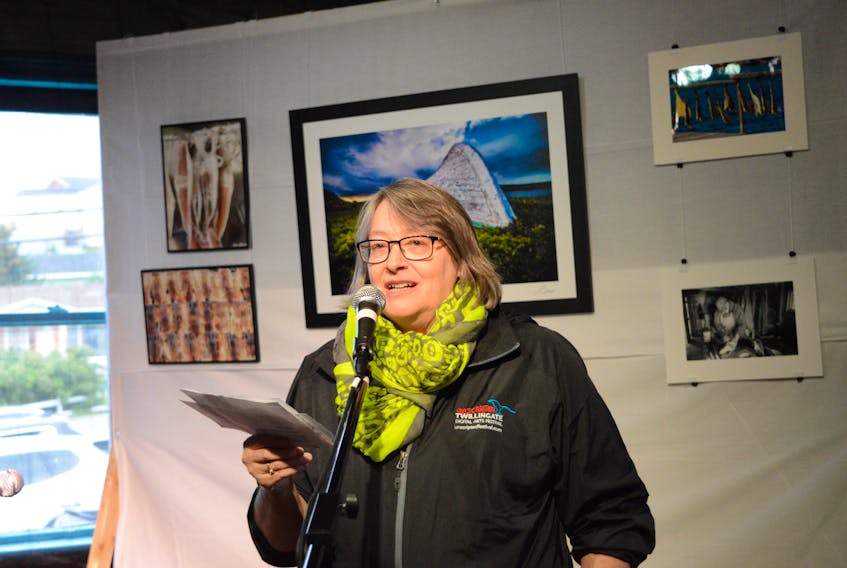Editor’s Note: Just over a year ago, our worlds changed. The first cases of COVID-19 struck in Atlantic Canada and governments closed businesses and put safety measures in place to keep people safe, which had a ripple effect on our livelihood and economy. We’re taking a look back at how we lived, loved, worked, played and changed over the past year, and what lessons we’ve learned as we move forward.
Like many Atlantic Canadian business owners, Deborah Bourden had an extremely tough year.
The Twillingate woman is co-owner and operator of the Anchor Inn Hotel & Suites, as well as several other businesses in the town. She’s also secretary for the Twillingate Islands Tourism Association, giving her a good handle on the health of the industry.
“The damage to our industry is catastrophic,” she said, noting operations in 2020 were 50 to 70 per cent lower than 2019.
Bourden said many in the tourism sector either didn’t have work or were unable to work as many hours, forcing them to seek employment in other sectors.
The year wasn’t a complete washout; the Atlantic bubble gave most operators a little bit of a summer season. The difference — and this went for tourism operators in other Atlantic provinces — was that much of the marketing targetted locals, which in Twillingate, at least, normally represents only 10 per cent of business during the summer.
“We wanted to get the message out to the urban centres: come spend your money in rural Newfoundland,” Bourden said. “I cannot tell you how many people come here and say ‘wow, I’ve never been to Twillingate before; this has been amazing.’
“We opened up and welcomed our own.”
Bourden is hopeful summer 2021 will be an improvement, with the reopening of the Atlantic bubble, but also possibly the rest of Canada.
But, she admits, “COVID will forever change us.”

Opening to the rest of Canada?
The past 12 months have seen massive global shifts in how we live, work, travel, and socialize. It has killed over 2.6 million people worldwide, and over 20,000 here in Canada – including 65 in Nova Scotia, 29 in New Brunswick, and six in Newfoundland and Labrador.
It has devastated the economies of many countries, including Canada, which saw its worst economy on record last year.
And while Atlantic Canada has been able to weather the worst of the COVID storm so far, when it will end, and when we will recover, is uncertain.
Penny Walsh-McGuire, chief executive officer with the Greater Charlottetown Area Chamber of Commerce, said the chamber has consistently recognized the need for a balance between the safety of the public and an open economy.
Nevertheless, the past year has been “incredibly challenging,” especially for the tourism and hospitality sectors. While few businesses have permanently closed, Walsh-McGuire acknowledged a definite slowdown, especially in the downtown.
“With more people working from home, especially federal government workers, the downtown core, such as restaurants and services, has certainly felt an impact in terms of (the amount of) daytime traffic,” she said.
And while Walsh-McGuire praised the federal and provincial governments for offering wage and rent subsidies and other supports in a timely fashion, the business community remains anxious about the coming year.

She said the chamber hopes the line of communication between the business community and government will remain open.
While the Atlantic bubble is scheduled to reopen in April, Walsh-McGuire said the tourism industry needs more clarification on what to expect before businesses begin hiring summer staff. There is still the question of whether the market reopens to the rest of Canada as well.
“What will be required and under what conditions,” she said. “A lot of questions are still to be answered.”
That uncertainty is also related to the chamber’s call for the federal government to extend the various relief programs until at least September.
“If it doesn’t continue past June and businesses don’t have access to the broader market, including the rest of Canada, it will be a challenge for a lot of businesses (in the tourism sector) to keep their doors open,” Walsh-McGuire said.
Back in Twillingate, Bourden said regardless of what happens with border re-openings, the reduction in ferry crossings, plus the fact Air Canada and WestJet suspended many flights in and out of the province, are significant barriers.
“We could open up tomorrow and say, ‘everybody come,’ but how the heck would they get here?” she asked.
Atlantic Canadian advantage?
Despite concerns about the economic side of things, Walsh-McGuire and Bourden both praised the chief public health officers of their respective provinces for how they handled the pandemic.
“Dr. Heather Morrison has done a great job, and our economy has remained open compared to other jurisdictions,” Walsh-McGuire said.
“I have so much respect for the enormous burden (Dr. Janice Fitzgerald) had to bear for the past year … and with a tremendous amount of grace,” Bourden said. “I only had to worry about my team for a short season, and it weighed on me every single day.”

It’s fair to say several factors were at play that was to Atlantic Canada’s advantage. Susan Kirkland, who heads the Department of Community Health and Epidemiology at Dalhousie University, said one is that we have a low-density population, while another is the fact that P.E.I. and Newfoundland are islands, making it easier to contain the virus.
Kirkland said governments were willing to act on the advice of those in public health, and the public was very responsive to health measures, including getting tested.
She points to the outbreak in Halifax in November which resulted in a call for all staff and patrons of bars and restaurants to get tested even if they don’t have symptoms. Kirkland said the messaging was effective at engaging the 20-to-39-year-old age group that was being targeted.
“It wasn’t about accusing that group,” she said. “It’s ‘how can we work with that group?’”
Kirkland points out, however, the efforts at containing the virus have meant we haven’t built up any immunity, so the virus can spread “like wildfire” if there is an outbreak. But we still had little choice but to take extreme measures, she added.
“We don’t have the resources of larger provinces, particularly around public health and around hospitalizations and beds,” Kirkland said.
“(But) we can still do a really good job of testing and contact tracing and we’re also able to manage the flow of beds.”

The downside
Kirkland said there have been some missteps, as well as possible long-term negative effects as the result of some measures that have been taken. She pointed to the early decision by many jurisdictions to close public spaces, such as parks, as part of the initial full-scale lockdowns.
“It may not have been the best idea, but we just didn’t really know what we were up against,” she said.
There’s even more of a downside is the pandemic’s effect on other forms of health care.
Kirkland noted many procedures were delayed early on due to hospital restrictions. The consequences probably won’t be known for a couple of years when complete data on all-cause mortality is compiled.
She said the pandemic has also taken a toll on mental health — and overall health — for people of all ages, from seniors to school-age children, due to social isolation and loneliness.
“There is a lot of concern about brain health and cognitive function among those who have been less engaged, both physically and mentally,” Kirkland said. “We won’t have a good handle on that for a while.”
Kirkland said some of the unknowns include whether this virus will become endemic (restricted to particular areas) or whether additional vaccines are needed in the future.
“We don’t really know how long our natural immunity will last, how long the vaccine immunity will last,” she said.
Even with all that, Kirkland has her fingers crossed in hopes this summer will look “an awful lot better,” thanks to the four vaccines that are already on the market. She also feels better knowing the majority of long-term care residents are vaccinated.
She emphasizes the need for people in Atlantic Canada to “double down” for a while longer on those things and actions that lessen the impact of the disease – including washing of hands, social distancing, and mask-wearing.
“I think it’s a small price to pay,” she said.









